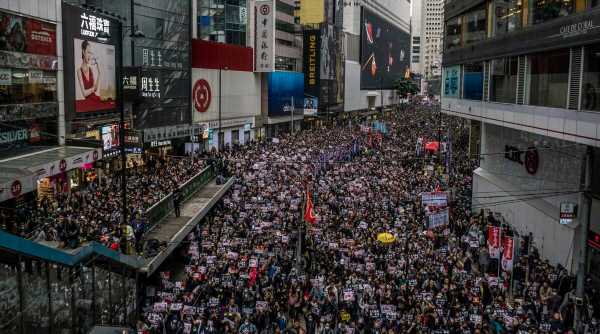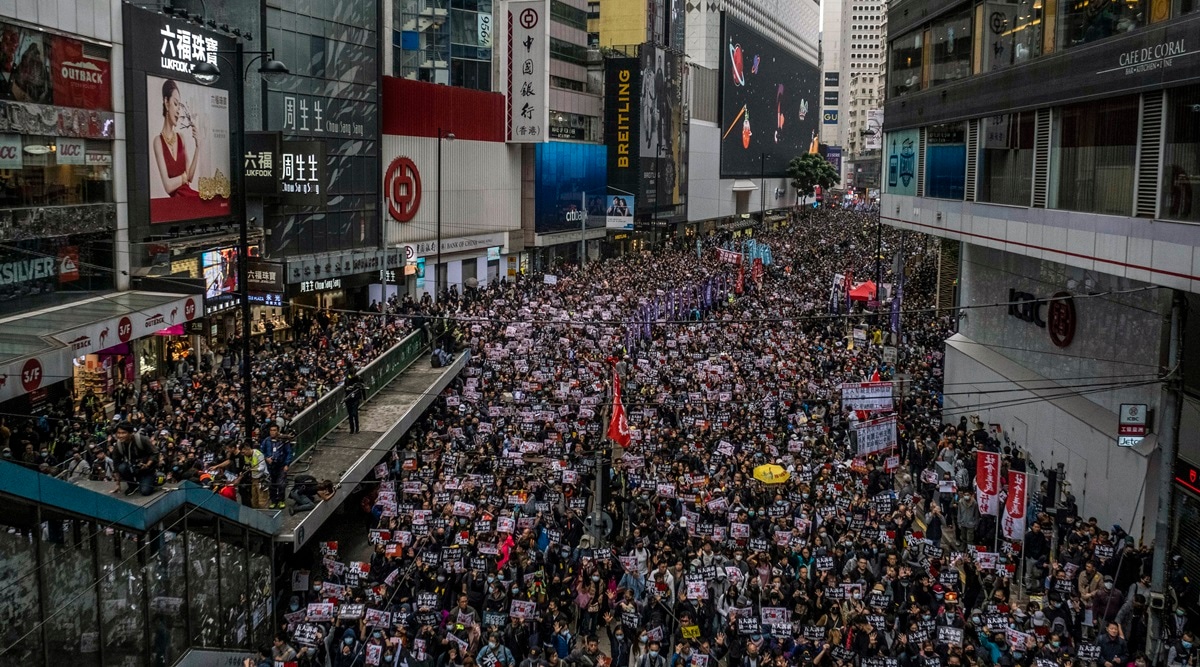The pro-democracy activists angered officials by taking part in an unofficial primary election ahead of local polls.
Hong Kong police charged a group of 47 prominent dissidents with “conspiracy to commit subversion” on Sunday.
It is the single largest use yet of Beijing’s controversial, sweeping national security law against the city’s democracy movement.
The 47 charged were among 53 pro-democracy activists arrested by police in January. Those detained in the crackdown had links to an unofficial primary election organized by pro-democracy parties ahead of local legislative polls.
The National Security office had ordered some of those arrested in January to report to local police stations in Hong Kong at 2 p.m. local time on Sunday.
They will appear in court on Monday morning, the Hong Kong police said in a statement.
The defendants include 39 men and eight women aged between 23 and 64, police added.
Who has been charged with ‘subversion’?
The charged activists are a broad cross-section of Hong Kong’s opposition.
They include veteran former pro-democracy lawmakers such as James To and Claudia Mo as well as academics, lawyers and social workers.
Those also called in by Hong Kong police include a group of younger “resistance camp” democratic activists including Lester Shum, Sam Cheung, Ventus Lau and Fergus Leung.
Some posted on social media before heading to the police station.
“My chance of bail won’t be too great,” wrote Benny Tai in a post. He was also charged and accused by Chinese authorities of being a key tactician for the pro-democracy movement.
Gwyneth Ho, a journalist and activist, posted on her Facebook page before being charged: “I hope everyone can find their road to peace of mind and then press forward with indomitable will.”
Hong Kong’s National Security Law
Beijing imposed the legislation in June 2020 after swathes of the population hit the streets in 2019 in huge and sometimes violent democracy protests.
It criminalizes acts deemed to be subversion, secession, terrorism and collusion with foreign forces.
Those charged are routinely denied bail until trial and face up to life in prison if convicted.
The new law has drawn international condemnation for jeopardizing Hong Kong’s civil liberties enshrined under the “one country, two systems” framework, including freedom of speech and assembly.
Source: Read Full Article


